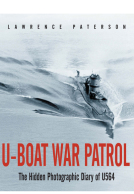The Duke of York's Flanders Campaign (Hardback)
Fighting the French Revolution 1793–1795
(click here for international delivery rates)
Order within the next 9 hours, 55 minutes to get your order processed the next working day!
Need a currency converter? Check XE.com for live rates
| Other formats available - Buy the Hardback and get the eBook for free! | Price |
|---|---|
| The Duke of York's Flanders Campaign ePub (17.2 MB) Add to Basket | £6.99 |
Revolution was on everyone’s lips. The ancien régime had been cast aside and King Louis XVI had been executed in front of a mocking crowd. Every crowned head in Europe trembled with fear – ideas knew no frontier. The monarchies of Europe had to act swiftly to crush the Revolution, and a coalition of the great powers of Britain, Austria, Prussia and Spain was formed to restore the natural order.
The armies of the First Coalition gathered round France’s borders, the largest of which was assembled in Flanders. Composed of Anglo-Hanoverian, Dutch, Hessian, Prussian and Imperial Austrian troops, its aim was to invade France and restore the nobility to what was considered their rightful place. Opposing them was the French Armée du Nord.
In command of the Anglo-Hanoverian contingent was the son of George III, the Duke of York. The campaign was a disaster for the Coalition forces, particularly during the severe winter of 1794/5 when the troops were forced into a terrible and humiliating retreat. Britain’s reputation and that of its military leaders was severely diminished, with the forces of the Revolution sweeping all before them on a tide of popularism.
Yet, from this defeat grew an army that under the Duke of Wellington would eventually crush the Revolution’s greatest general, Napoleon Bonaparte. Of the Flanders Campaign, Wellington, who fought as a junior officer under the Duke of York, remarked that the experience had at least taught him what not to do!
Napoleon Series research editor Steve Brown has produced one of the most insightful, and much-needed studies of this disastrous but intriguing campaign, with particular focus on the British Army's contribution. With copious maps and nineteen appendices including detailed orders of battle, he concludes this important work with an analysis that draws striking, and significant comparisons with the Flanders campaigns of 1914 and 1940. How history repeats itself!
This is one of the best accounts of this campaign that I’ve read. The author does a good job of getting the balance between a readable overview and a detailed campaign history right, so we get enough detail to understand the many battles of the campaign, without getting bogged down. That’s quite tricky to achieve when looking at this campaign, which took place over quite a large area, and see-sawed repeatedly, with a series of short lived French commanders achieving some success before being dragged off to the guillotine or deserting, and the same areas being fought over repeatedly. Although the focus is on the Duke of York’s army, we do get good material on his allies, and on the dramatic changes taking place in France, both politically and in the evolution of the French army.
History of War
Read the full review here
This is wonderful wordsmithing. I have nothing but high praise for this book!
Napoleonic Historical Society - reviewed by Todd Fisher
...sets the events firmly within the history of the period, gives us an education in the military practice and institutions of the day, and offers mini-biographies of many people who were famous at the time or later played important roles in the wars.
The NYMAS Review, Spring 2020
This is well written, incisive and compelling book which is highly recommended not just for the historian of the period but also the casual reader of military history. For the real buff there are a number of detailed appendices with all manner of facts and interpretation that will add greatly to the readers interest and enjoyment of the work. There is a great deal to be learnt from this work!
Robert Bartlett
The Duke of York got bad press at the time and, from historians, subsequently because he led an Allied force against the French and was driven back. The author has provided fresh insight into a disastrous campaign through fresh study. – Very Highly Recommended.
Firetrench
Read the full review here
As featured by
VaeVictis, n° 150 - March/April 2020
Whopping and interesting book.
The Armourer, March 2020
This is a well crafted narrative of the Flanders Campaign and highlights the extent to which the outcome was conditioned by events beyond the direct control of the British Army. It also describes how the army had to endure the ‘learning curve’ of campaigning against revolutionary France and how to a significant extent the lessons learnt were a foundation for success in the eventual victory at Waterloo. A fine read.
Michael McCarthy
Michael McCarthy. Battlefield Guide
About Steve Brown
Author STEVE BROWN is a Research Editor on the Napoleon Series website and runs the highly-regarded British Regiments and the Men Who Led Them series, as well as being a book reviewer. He is also the author of ‘Wellington’s Redjackets’, ‘By Fire and Bayonet’, and was general editor on William Brown’s ‘The Autobiography, or Narrative of a Soldier’. He has ancestors who fought in Flanders, and marched with Wellington at Roliça, Albuera, Vittoria, San Sebastian and Waterloo; therein lies his motivation and inspiration.
The assault was failing. Wellington's men had stormed the walls of the great frontier fortress of Badajoz only to be beaten back with terrible losses. Then on the keep of the old castle the French flag was torn down and a British officer's red jacket was hauled up the flagpole. It was the signal – the British were inside Badajoz! This was one of the most famous incidents during the Peninsular War and marked not only the turning point in the capture of Badajoz but of the entire conflict. The jacket belonged to Lieutenant James MacPherson of the 45th (Nottinghamshire) Regiment. The 45th had landed…
By Steve BrownClick here to buy both titles for £43.75


















